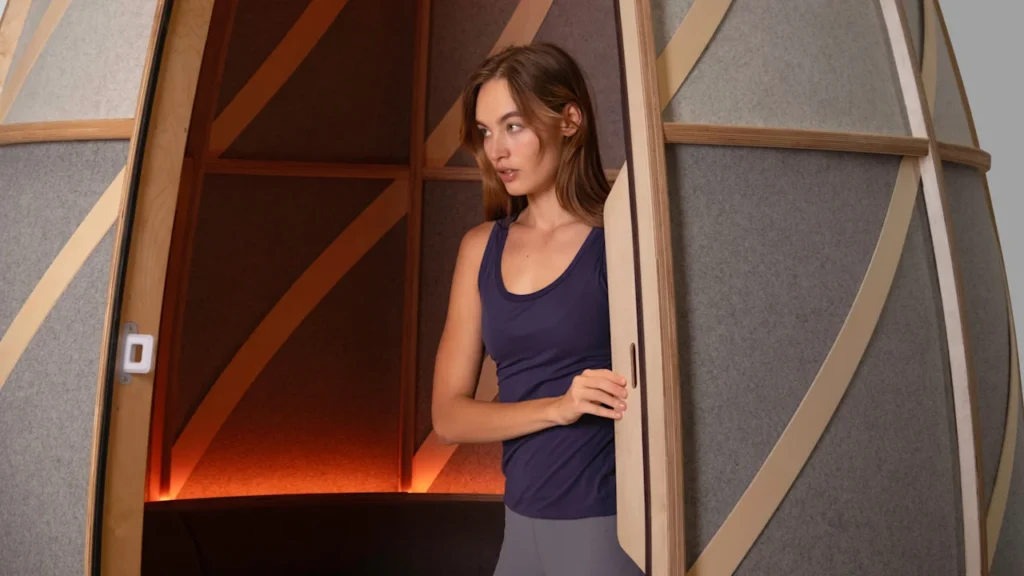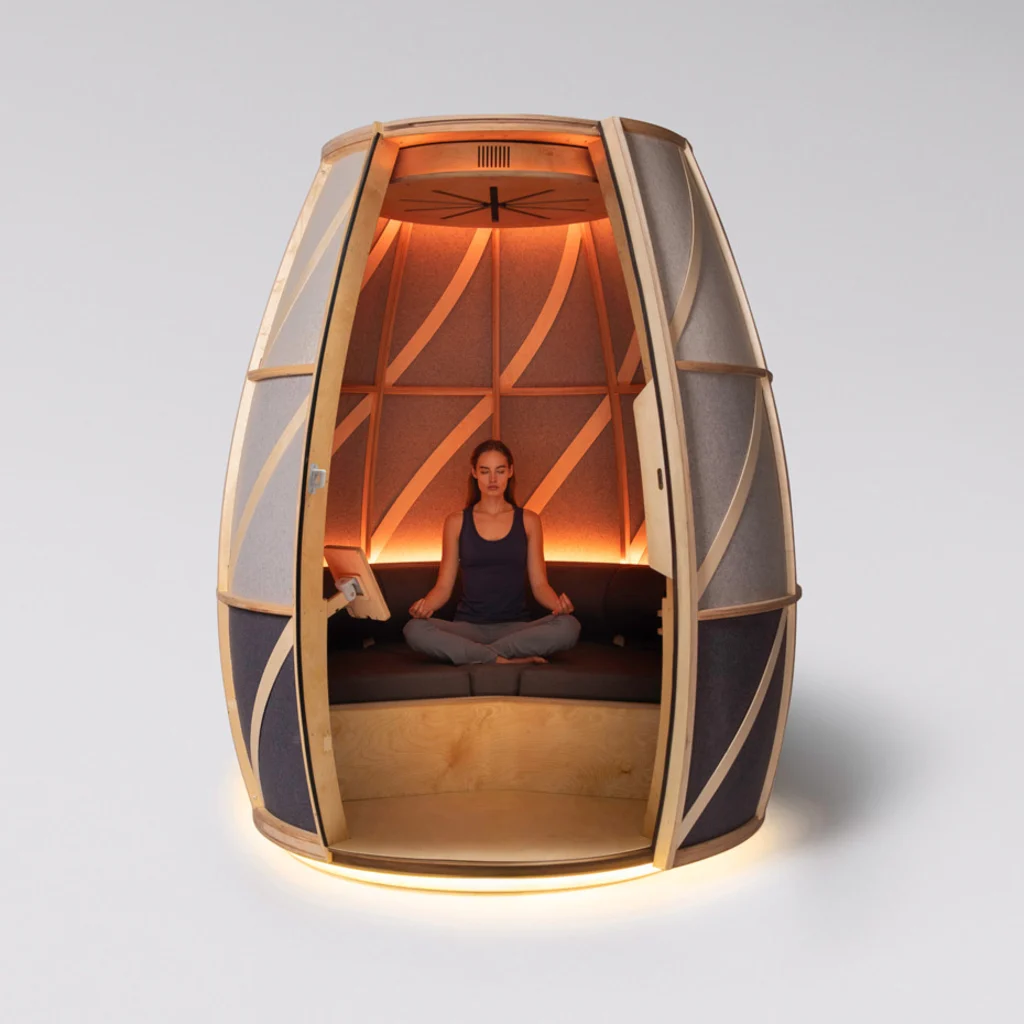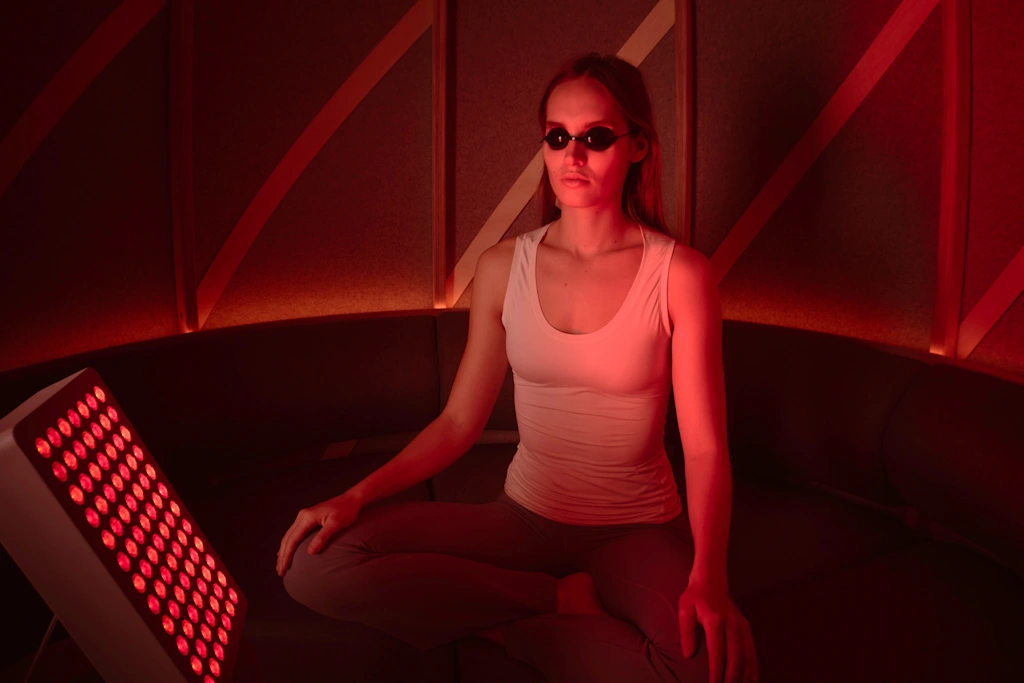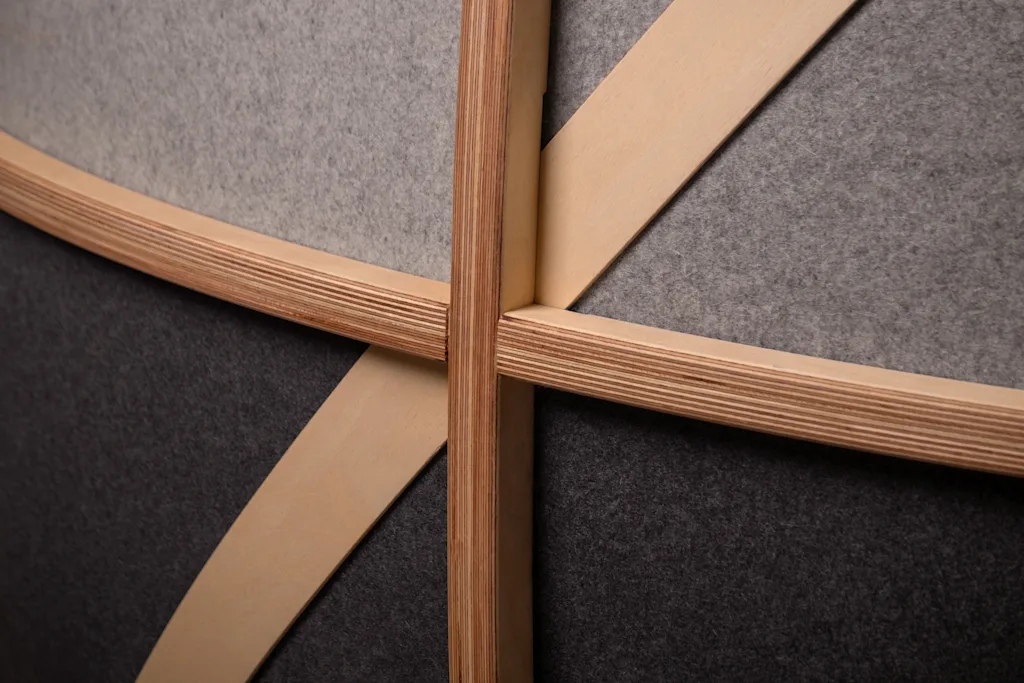
If you have a stressful job, meditation can help—but it’s not easy to meditate at work. A new workplace pod is designed to help by giving you a private place to take a break, run through a guided meditation or breath work, and begin to experience benefits like improved focus and reduced burnout.
OpenSeed, the startup behind the Iris Pod, launched in 2018 after founder Jonathan Marcoschamer attended a 10-day silent meditation course. He wanted to keep meditating during the day, but was working in an open plan office. “I couldn’t find anywhere to meditate,” he says. He also wanted to help make meditation more accessible for other people. So he started work on a prototype of a pod that could sit in a larger space.

The first version was installed at companies like Deloitte and Morgan Stanley, where Marcoschamer says that it’s used as often as 16 times a day. The new version, in production now for delivery in early 2026, was developed over the last few years with Yves Behar’s Fuseproject, along with the Mexico City-based design studio Tuux.

When you step inside the womb-like pod and close the door, a light outside shows that it’s occupied. Made from wood and wool felt panels and softly lit, it feels welcoming. “At the onset, we asked one question: how do we make an environment that as soon as you stepped in, it made you feel calmer?” says Marcoschamer.

The panels, with wood sandwiched between two layers of felt fabric, help isolate sound so you don’t hear coworkers when you’re inside. On a tablet, you choose a program—a meditation to help boost energy, for example, or to calm you down after a stressful meeting. Music helps guide your breath, synchronized with the lighting. The floor and seat gently vibrate. Lavender and other essential oils offer aromatherapy. The sessions are designed to last around 10 minutes.

Fuseproject designed the large pods to ship flat and then be easily assembled on site—drawing on the team’s previous experience with prefab homes—rather than delivering the product in a giant crate. “Shipping is always such a high cost, both in terms of the final price point of the product and environmental cost,” says Behar. The pod can be assembled within a few hours. (Initially, the team also planned to use recycled, 3D-printed wood for the structure, but the new technology wasn’t quite ready for this type of application.)
The pods can be used in places beyond offices; one of the newest customers is a cancer treatment center, where OpenSeed plans to study how using the pods reduces stress. Other hospitals already used the first version of the product for doctors and nurses on breaks, but now it will also be used by patients. A correctional facility will provide the pod for police officers.
The product is pricey, at $22,500 plus shipping and installation fees, but Marcoschamer argues that in a large office where it’s frequently used, the cost per use is low. “We’re seeing so many high-end wellness centers with all these very expensive treatments,” he says. “We want this to be something that’s accessible.”




